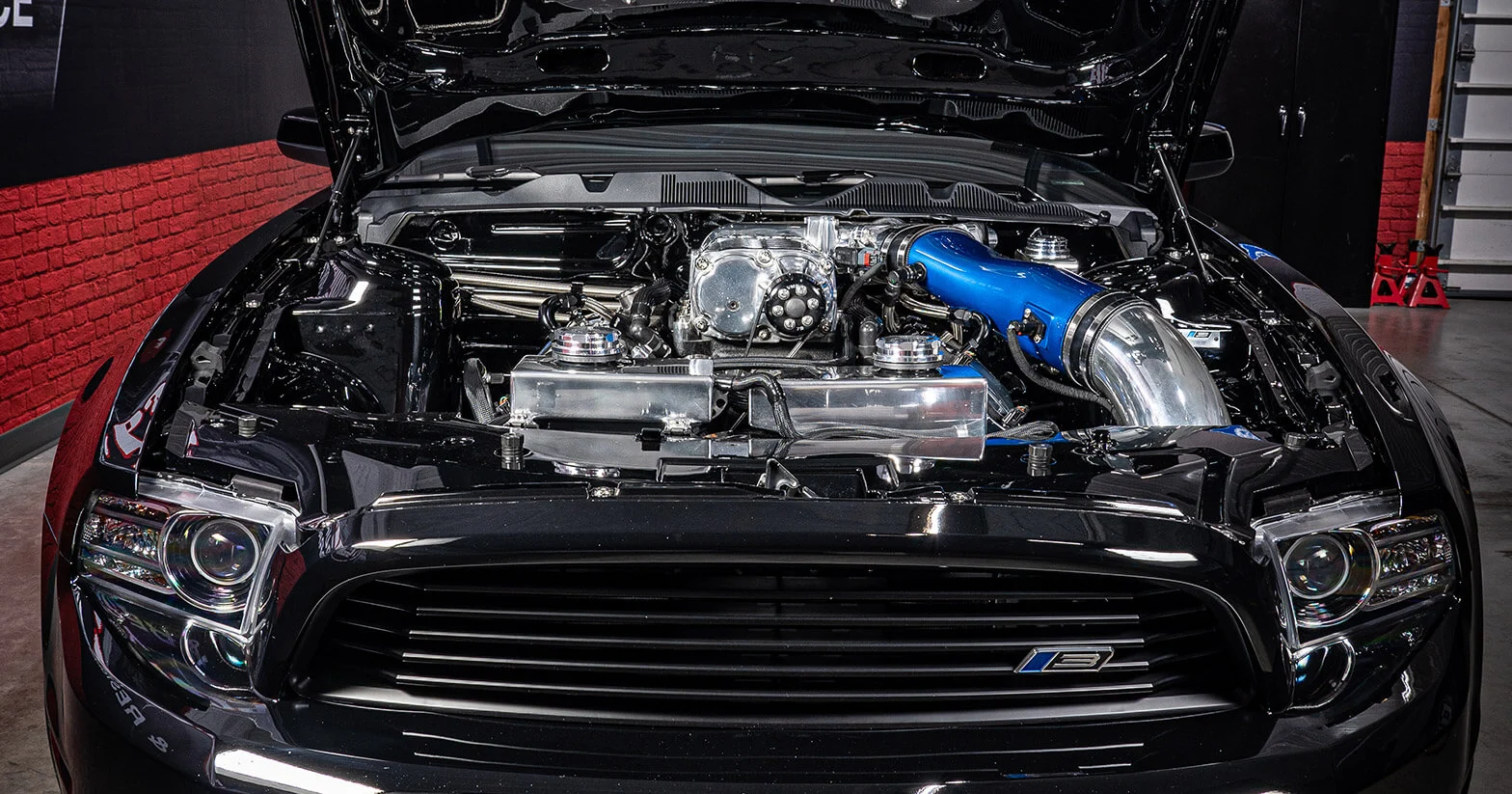Why Proper Maintenance Matters
Keeping your Ford Mustang well-maintained ensures peak performance, longevity, reliability—and preserves its resale value. Regular care helps avoid costly breakdowns and keeps your ride smooth and safe.Haynes Manuals+1hytecautoservices.com+1

✅ Routine Service Guide
Oil & Filter
-
Mustangs use an Intelligent Oil-Life Monitor™ to track usage-based intervals. Most oil changes occur every 5,000–10,000 miles, or sooner under severe driving conditions like track use or towing.AmericanMuscle.com+3Auto User Guide+3Auto User Guide+3
Tire Rotation & Pressure
- Rotate tires every 5,000–7,500 miles to ensure even wear and reliable handling.
- Check tire pressure monthly and maintain the manufacturer-specified PSI for best performance.HEART Certified Auto Care
Multi-Point Inspection
-
At each oil service, inspect cooling system hoses, brake components, suspension joints, steering linkage, and exhaust. Glance for leaks, wear, or damage.macheclub.com+15autonationfordpanamacity.com+15richmondfordlincoln.com+15
🔧 Scheduled Maintenance Intervals
| Mileage / Time | Recommended Service Tasks |
|---|---|
| Every oil‑interval (or annually / 12 months) | Oil & filter change, tire rotation, brake system check, cooling hoses inspection, multi‑point inspectionAuto User Guidehoblitford.com |
| 20,000 miles | Replace cabin air filterAuto User Guiderichmondfordlincoln.com |
| 30,000 miles | Replace engine air filterAuto User Guiderichmondfordlincoln.com |
| Every 60,000 miles | Replace spark plugs, inspect belts, check coolant, possibly transmission or differential fluid change if neededAuto User Guiderichmondfordlincoln.comvehicle.firestonecompleteautocare.com |
| Every 100,000 miles | Replace spark plugs and accessory drive belthoblitford.comvehicle.firestonecompleteautocare.com |
| Every 150,000 miles | Replace transmission fluid/filter (auto/manual), replace rear axle fluid, replace accessory belts, coolant flush if dueAuto User Guidevehicle.firestonecompleteautocare.comvehicle.firestonecompleteautocare.com |
| Every 3 years | Flush brake fluid regardless of mileageAuto User GuideReddit |
For dusty or extreme operating conditions (off-road, frequent idling), filters should be changed more often, and oil services may need to be accelerated.Auto User GuideAuto User Guide
🧰 Key Maintenance Components
- Cooling System: Check coolant level and hoses at least every 30,000 miles or annually. Replace coolant every few years or per Ford’s schedule.AmericanMuscle.comhoblitford.com
- Brakes: Inspect pads, rotors, and lines every 6,000 miles; flush brake fluid every 3 years to prevent moisture buildup.HEART Certified Auto Care
- Suspension & Steering: Lubricate tie‑rod ends, ball joints, and center links regularly to preserve handling and reduce wear.hotcars.com+1Auto User Guide+1
- Transmission & Differential Fluid: Manual transmission fluid should be refreshed at ~60k miles or after heavy use; automatic transmissions and rear-axle fluids also should be serviced per interval schedule.Auto User Guidevehicle.firestonecompleteautocare.comReddit
- Air Filters: Engine air filter at ~30k miles, cabin filter at around 20k. More frequent replacement in dusty climates.hoblitford.comHaynes Manuals
- Spark Plugs: Replace spark plugs around 100k miles to maintain engine efficiency and performance.vehicle.firestonecompleteautocare.com
👩🔧 Tips from Mustang Owners
- Owners often report evaporator issues in 2015–2017 models: malfunctioning AC systems that require component replacement.Reddit+1Reddit+1
- Some note AC compressor failures early in life—worth checking early or maintaining AC cycles during storage.RedditReddit
- Wheel bearings, struts, and hubs need attention after ~40k+ miles; proactive checks can prevent costly repairs. Adhesive coolant upgrades and brake fluid flushes are preventative must-dos.Reddit

🧼 DIY Maintenance Tips
- Monthly: Check oil, coolant, brake, transmission, washer fluids; inspect belts and hoses for cracks or wear. Replace wiper blades annually.HEART Certified Auto Care
- Ensure timely micro-filter and cabin filter changes based on climate exposure.
- Use only high-grade synthetic oil that meets Ford specifications to maximize engine protection.
